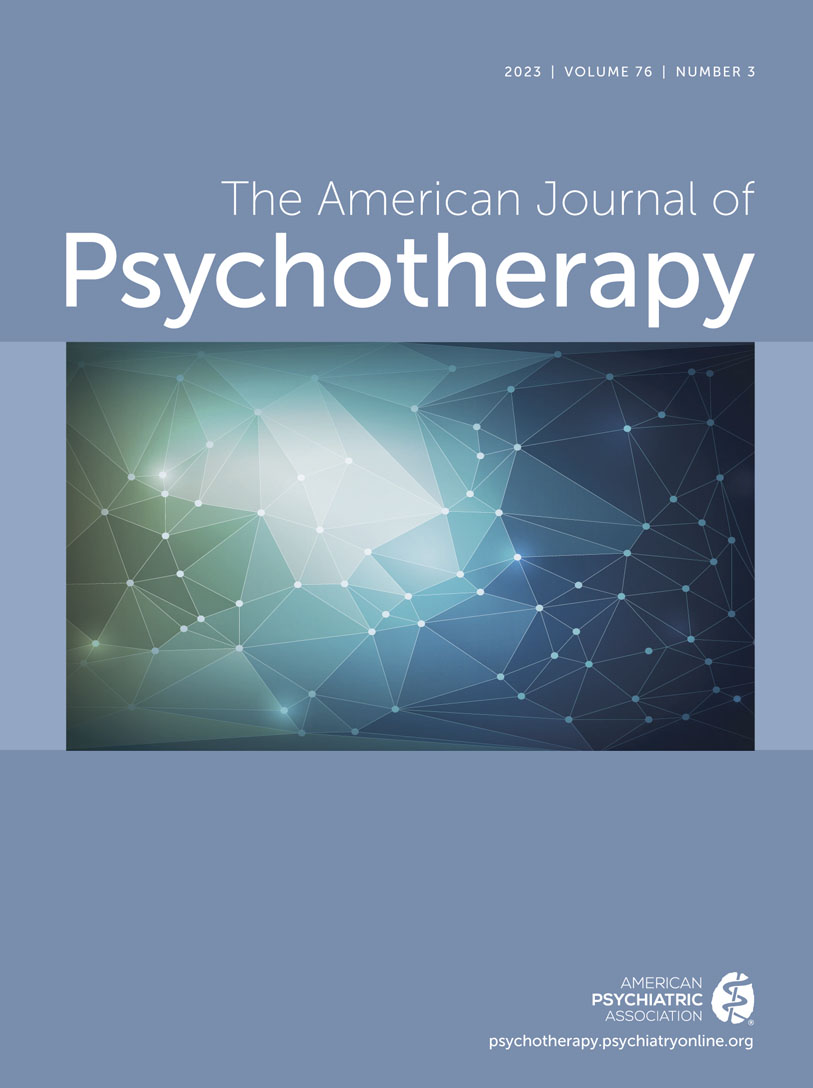American Journal of Psychotherapy
- Volume 59
- Number 3
- July 2005
Articles
Publication date: 01 July 2005
Pages181–197This paper reviews neuroscientific advances across the therapeutic disciplines and outlines new potential insights into understanding the biology of the psychotherapeutic processes. In a quest to understand the modus operandi of psychotherapy, the author ...
https://doi.org/10.1176/appi.psychotherapy.2005.59.3.181Publication date: 01 July 2005
Pages199–212The primary aim of this study was to investigate therapists’ use of self-disclosure with their child patients. A sample of 126 mental health professionals with an average of 20 years of clinical experience completed the Therapist-to-Child Disclosure ...
https://doi.org/10.1176/appi.psychotherapy.2005.59.3.199Publication date: 01 July 2005
Pages213–226Psychophysiologic measures, such as skin conductance and heart rate, have been used in both psychotherapy process research and clinical practice. We present a case report of a patient and therapist who participated in a process-oriented psychotherapy ...
https://doi.org/10.1176/appi.psychotherapy.2005.59.3.213Publication date: 01 July 2005
Pages227–245Although the number of intercultural marriages has dramatically increased in the last three decades, few articles have been published on the counseling of intercultural couples. The authors propose a methodology for working with these couples using inter ...
https://doi.org/10.1176/appi.psychotherapy.2005.59.3.227Publication date: 01 July 2005
Pages247–265In the opinion of many experts, the self is made up of numerous different, independent facets interacting with each other in an ongoing inner dialogue. The meaning of events depends on the form this dialogue takes. The hypothesis we discuss in this ...
https://doi.org/10.1176/appi.psychotherapy.2005.59.3.247Publication date: 01 July 2005
Pages267–281This article reviews the types of adjustments needed to an adult protocol of cognitive-behavioral therapy (CBT) for bulimia nervosa (BN) to make it more acceptable to an adolescent population. Employing developmental principles as well as clinical ...
https://doi.org/10.1176/appi.psychotherapy.2005.59.3.267Book Review
Past Issues
View Issues Archive
Vol. 77 | No. 2

Vol. 77 | No. 1

Vol. 76 | No. 4
